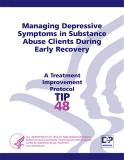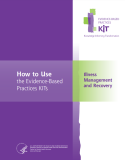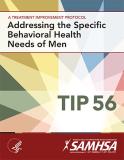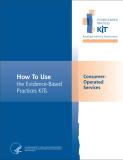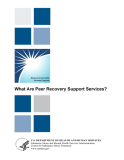
This manual explains peer recovery support services designed and delivered by people in recovery from substance use disorders. It discusses types of peer support for recovery, the adaptability and value of peer recovery support services, and cross-cutting core principles.
Units per Product
Download
What Are Peer Recovery Support Services?
File Type: PDF
File Size: 444 KB



